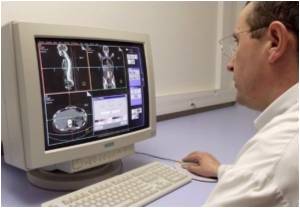A scientific discovery could well lead to a better understanding of chronic pain and a new treatment for a rare, inherited pain disorder.

"Transient receptor potential (TRP) channels are ion channels that have been implicated in all aspects of sensation. However, despite mouse studies suggesting that a number of TRPs play an important role in pain pathways, no human heritable disorders of pain sensation have as yet been linked to mutations in TRP channels," explains study author, Dr. John N. Wood from the Wolfson Institute for Biomedical Research at University College London.
The mutation is caused in the gene TRPA1.
"It was already established that TRPA1 is expressed in pain receptors in rodents and humans and that it plays an important role in response to environmental irritants in mouse models," says Dr. Ruiz-Linares.
"We discovered a gain-of-function mutation associated with FEPS that could give rise to stereotyped episodes of severe pain affecting principally the upper body."
"Our findings provide the first evidence that variation in the TRPA1 gene can alter pain perception in humans," concludes Dr. Wood.
Advertisement
The research is published by Cell Press in the June 10 issue of the journal Neuron.
Advertisement












